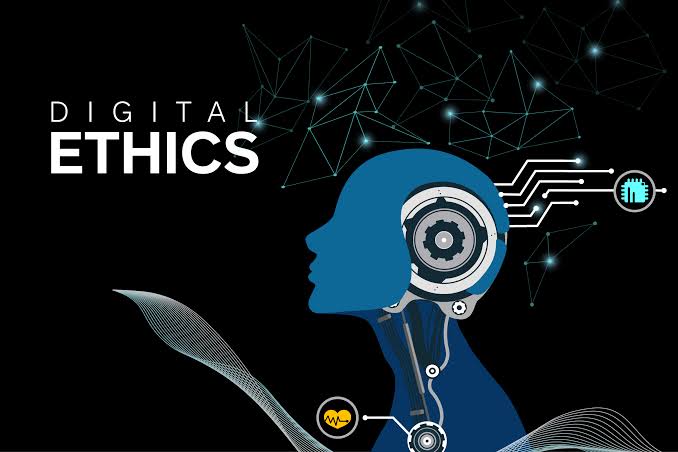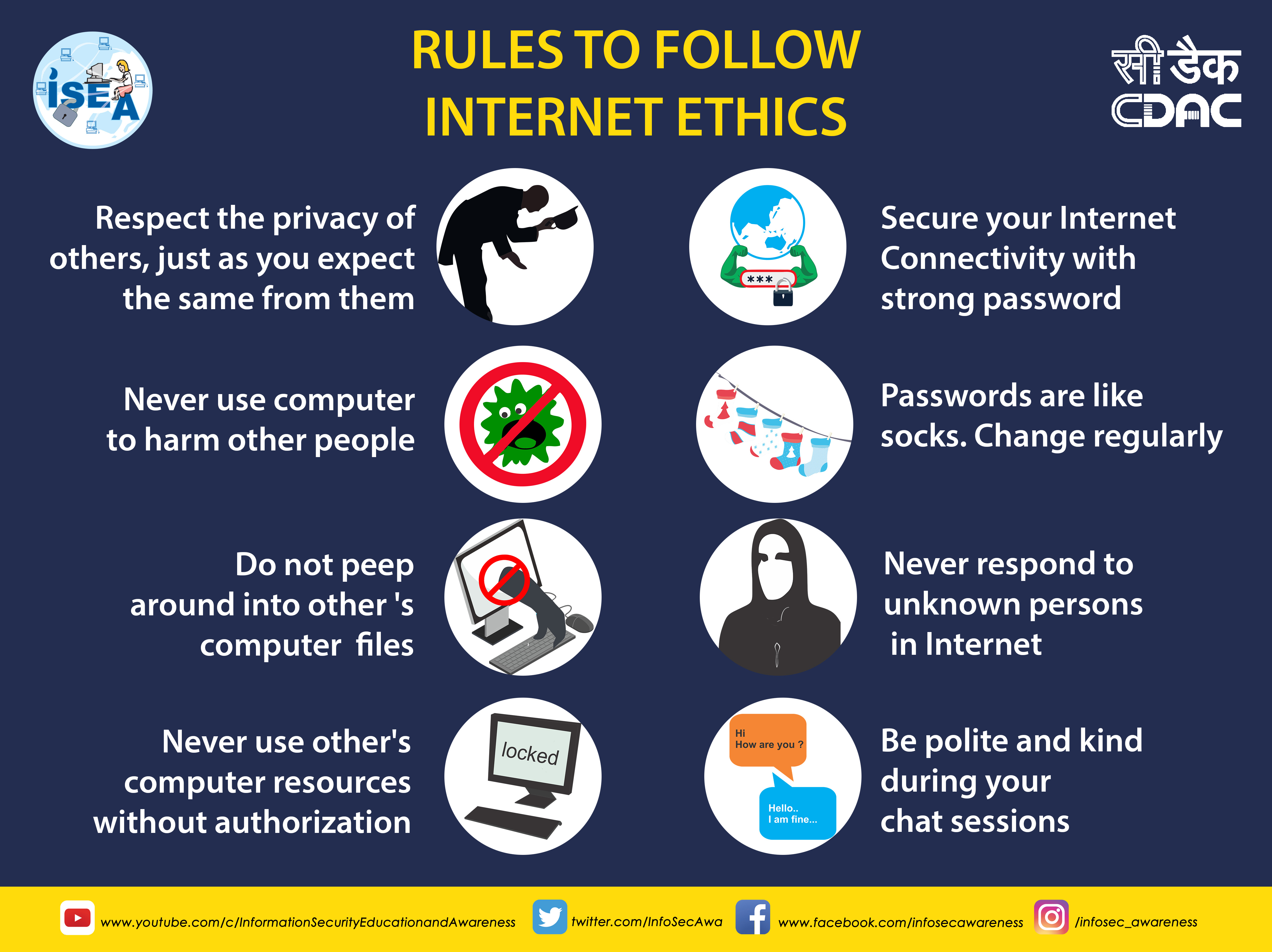 |
| IMAGE:CIONEWS |
Digital ethics refers to the moral principles that guide our behavior in the digital world. It’s about understanding the impact of our actions online and making choices that respect the rights and dignity of others. As we spend more time online, whether for work, socializing, or entertainment, it's important to consider the ethical implications of our digital interactions.
Why Does Digital Ethics Matter?
The digital space is vast and often anonymous, which can sometimes lead to behaviors that we wouldn’t consider acceptable in the real world. Digital ethics helps us ensure that our online actions are aligned with our values, promoting fairness, respect, and accountability.
 |
| IMAGE:Infosecawareness |
Five Key Areas of Digital Ethics
Let’s break down five important areas where digital ethics plays a crucial role:
1. Privacy
In the digital world, privacy is a major concern. Every time we use an app, browse a website, or sign up for a service, we’re sharing personal information. Digital ethics reminds us to consider how our data is being collected, stored, and used. Are companies respecting our privacy? Are we taking steps to protect our own data by using strong passwords and being cautious about the information we share?
2. Security
Cybersecurity is another critical aspect of digital ethics. With the rise of cyber threats, it’s important to ensure that our data and digital systems are secure. This means using encryption to protect sensitive information, being aware of phishing scams, and keeping our software updated to guard against new vulnerabilities.
3. Digital Footprint
Everything we do online leaves a trace, known as a digital footprint. Whether it’s a social media post, a comment on a forum, or a purchase history, this information can be tracked and stored. Digital ethics encourages us to be mindful of our digital footprint, considering how our online actions might impact our future and the way others perceive us.
4. Cyberbullying
The anonymity of the internet can sometimes lead to harmful behaviors like cyberbullying. Digital ethics promotes respect and kindness in all online interactions. Just as we wouldn’t tolerate bullying in person, we should stand against it online. This includes reporting harmful behavior and supporting those who are targeted.
5. Intellectual Property
The digital world makes it easy to share and access content, but it’s important to respect intellectual property rights. This means not pirating movies, music, or software, and giving proper credit to creators. Digital ethics teaches us to value the work of others and to contribute to a fair and legal digital economy.
 |
| GIF:GIFY |
Practicing digital ethics is about making conscious choices in your online activities. Here are a few simple steps you can take:
- Be Informed: Understand how your data is being used and take steps to protect your privacy.
- Think Before You Share: Consider the impact of your words and actions online, and remember that once something is posted, it’s difficult to take back.
- Respect Others: Treat people online with the same respect you would in person, and stand up against cyberbullying.
- Give Credit: Always acknowledge the creators of digital content and avoid using pirated material.
Conclusion
As we continue to embrace the digital age, the importance of digital ethics cannot be overstated. By being mindful of how we interact online, we can create a safer, more respectful, and more responsible digital environment for everyone. Remember, every click, share, and comment has an impact—so let’s make it a positive one.
This blog perfectly captures the essence of digital ethics in today's world.
ReplyDeleteI love how this blog explains digital ethics in a relatable manner.
ReplyDeleteSuch an educational piece!
ReplyDeleteThis article made me think about how much of our lives are now intertwined with the digital world
ReplyDelete